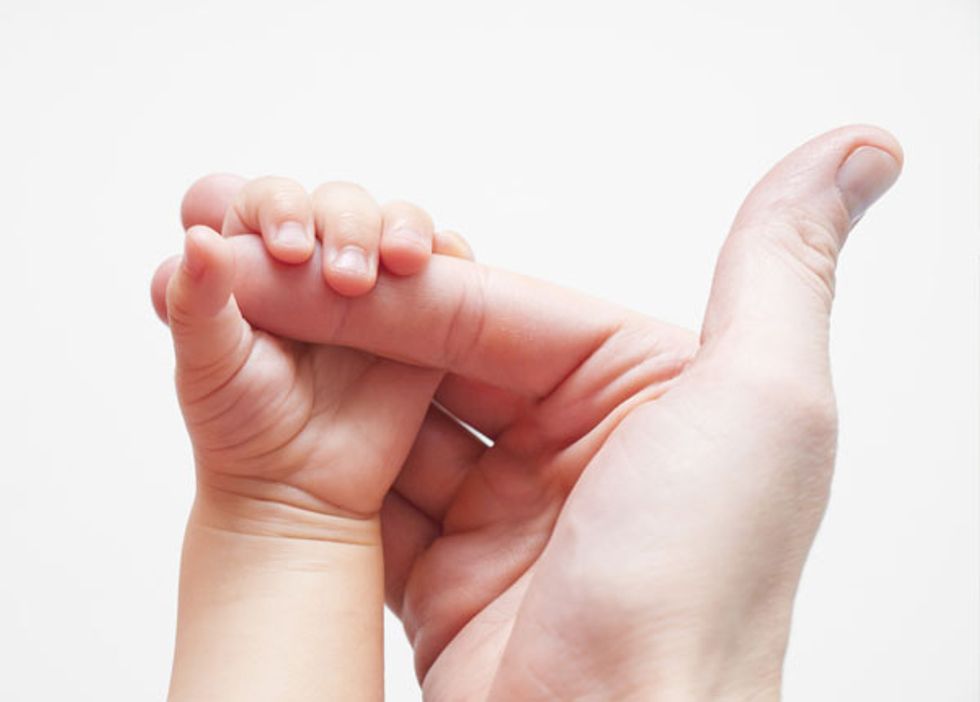Your baby gets hysterical when you leave to take a shower. And now you're about to go back to work. What's a mom to do?
Separation anxiety is hard on even the strongest of parents. Why does it happen? Once your child understands object permanence—that something continues to exist even if she can't hear or see it—the fact that you're gone can be unsettling. She doesn't understand that you'll return because she doesn't have a sense of time. It doesn't matter whether you're running downstairs to the fridge or you're going to the office for eight hours.
Separation anxiety is totally normal. And it's normal for baby and mommy to be nervous. These tips will help ease this stage of emotional development to make it more manageable when you go back to work.
Practice being apart. Have grandma watch the baby for an hour. Or your partner can occupy her while you go grocery shopping. Test a good-bye ritual to see what works and what doesn't. Having others watch her will help decrease her anxiousness later on. And it will teach her that mommy will return.
Do a test run. If a sitter or relative will be watching your baby, have her over for lunch or some playtime while you're there. If your baby will be going to daycare, see if you can leave her there for a few hours to get her accustomed to the new setting and people.
Fill their belly and give them slumber. Separation can worsen if your baby is tired or hungry. Try to separate from your child when he's fed and rested, after meals and naps. Sometimes it's easier said than done.
Keep it quick and positive. Lingering will only make the transition longer. And even a baby will sense something is off and get fussy, feeling like she should be afraid of something. Make your good-bye upbeat, cheery and short. And don't return. Once you've left, don't go back in. (Left behind your keys or forgot to bring in a box of diapers? If possible, ask someone to help you.)
Ensure your caregiver is prepared. Your sitter or daycare provider should be ready for your child as soon as you pass her over. She should be prepared to distract her from your departure with a toy or song.
Don't sneak out. Even though she's a baby, she'll sense your fear and won't trust you. And she can be even more upset when she realizes you're gone. So start with a game like peek-a-boo or wave good-bye. Avoid acting anxious or overdoing it on hugs because she might pick up on your emotions and feel like she should be worrying about something.
Stick with what works. Following the same routine at pickup and drop-off helps avoid the unexpected and helps your child transition from being with you to being without you. If you always walk your child into the classroom, do that, even if a teacher passing by offers to carry her in. Consistency will help your baby build trust and comfort.
Keep her comfortable. Does baby have a favorite stuffed animal? Does she carry a blanket with your scent? Leaving her with a favorite object may help put her at ease. Also give your caregiver detailed information on what soothes your baby, such as a song or motion.
Maintain routine. That means in the morning and at bedtime. It will show her that her world has a sense of structure to it and help her get through this transition. Allow enough time to get through what needs to be done. Otherwise even your baby can feel rushed. And also keep up any practices you've established like eliminating the pacifier or curbing her breastfeeding. Consistency will help comfort her, showing her that everything is still the same.







